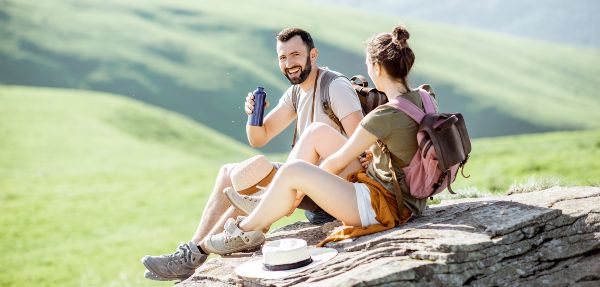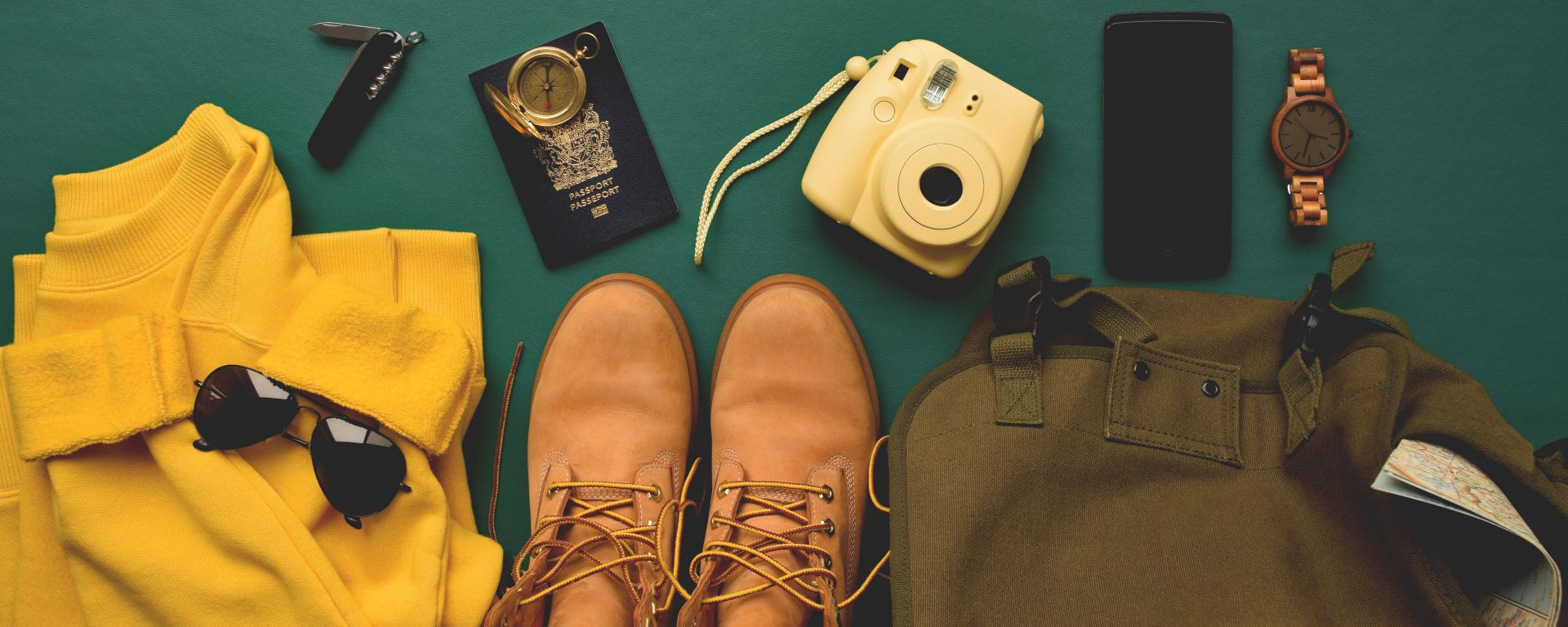Hiking is a fun way to spend some time outdoors. It is probably one of the outdoor activities we do the most because it’s a favourable way to explore a new place. When it comes to what you need to bring with you on a hike, there are some things you should consider. These things include the type of backpack you’re going to use, what snacks to pack, and what sort of emergency gear you should pack as well.
Whether you’re going for a casual day hike, or trying out a difficult summit, then proper equipment is vital. In this article, we will list the most important hiking equipment that should be packed in your backpack. Here are the 10 hiking essentials you should never forget for your epic hike.
- Navigation
- Sun Protection
- Footwear
- Water
- Nutrition
- Clothing
- A Light Source
- First Aid Supplies
- Repair Kit And Tools
- Emergency Shelter

1. Navigation
Even if you know the area in which you are hiking, keeping a paper map in a waterproof sleeve will be helpful, especially for long hikes. Also, a trusted compass should accompany you on your trip into the wilderness. Both of these items are guaranteed to keep you from getting lost and will help you find your way. The most important thing is that you know how to use them. It’s important to note that your phone’s GPS may not have a signal depending on where you are hiking.
2. Sun Protection
Protection from the sun is incredibly important for hiking, especially during summer. Sunscreen, sunglasses, a brimmed hat, SPF lip balm, and protective clothing are essential for every hiking trip, even if it looks cloudy. Sunburns, cracked lips, and possible snow blindness can be debilitating if the sun isn’t taken into consideration.
3. Footwear
What you wear on your feet can make or break your hiking trip. It’s important to think about support, traction, and protection when selecting shoes or boots, and make sure that they are well-fitted.
4. Water

It’s essential to stay hydrated on the hiking trail to keep your body running efficiently. Water is needed to cool you down, and will help your muscles and joints remain in working order. It’s recommended that you pack enough water for the entire trip, or use a lightweight water filter if you know where there are water sources. Make sure that your water bottles are easily accessible while you’re hiking. While water is incredibly important for hiking, you shouldn’t pack too much of it, otherwise your backpack will be too heavy to carry.
5. Nutrition
When prepping for your hike, it’s good to make sure that you bring enough snacks to make up the calories you burn. Granola bars and energy bars are some common favourites. You may also want to pack dried fruits, nuts, and biltong. For a small lunch, you could pack your favourite sandwiches. Make sure to add some extra calories if you’re going on a lengthy hike.
6. Clothing
The weather can be unpredictable, so it’s a good idea to bring along some extra layers in case of a change in weather while hiking. Simple dry clothing will ensure that you’re safe if the temperature drops. You should remember to pack a rain jacket or dry mac on every hiking trip, regardless of the weather forecast.
Also, you’ll want to avoid cotton clothing. Instead, choose synthetic layers that will keep you from perspiration.
7. A Light Source

It’s a good idea to pack a reliable headlamp for every hiking trip, even if you’re not planning on hiking in the dark. Sometimes hikes can take longer than expected, and suddenly daylight can start to fade. You’ll be happy to have packed a headlamp or have your phone charged as a backup light source if it does start to get dark.
8. First Aid Supplies
When going for a hike, you should ensure that you have a first aid kit for any possible accidents. A prepackaged first aid kit will provide a reliable setup for minor accidents. As you gain experience, you’ll know what you can remove or add to your first aid kit based on your needs. It’s good to always make sure that once you get home from your hike, you check your first aid kit for anything that may need to be replaced.
9. Repair Kit And Tools
There should be some reliable tools in your backpack, such as a swiss army knife or a simple multi-tool knife. It will often come in handy in various situations on the trail. Duct tape is also a useful tool for repairing gear on the hike. You might need it to fix broken tent poles or sunglasses; it even works well for preventing blisters when you feel one starting to form on your foot.
10. Emergency Shelter
For day hiking trips, it’s recommended to bring a small, light emergency shelter, just in case you have to spend an extended period outdoors. Emergency blankets are lightweight and affordable; they could potentially save your life if you’re ever in a rough spot.
Conclusion
Some additions to your backpack that you may want to include on your hike are items like toilet paper, hand sanitiser, and even trekking poles. We hope that this guide serves you well when prepping for your next hike. If you’re a keen hiker living in Gauteng, visit these 5 beautiful hiking trails in Johannesburg. There are also many other incredible attractions and outdoor places to visit in South Africa. Remember to stay safe and comfortable on your trip through the wilderness. If you found this guide useful, feel free to share it with your friends.









